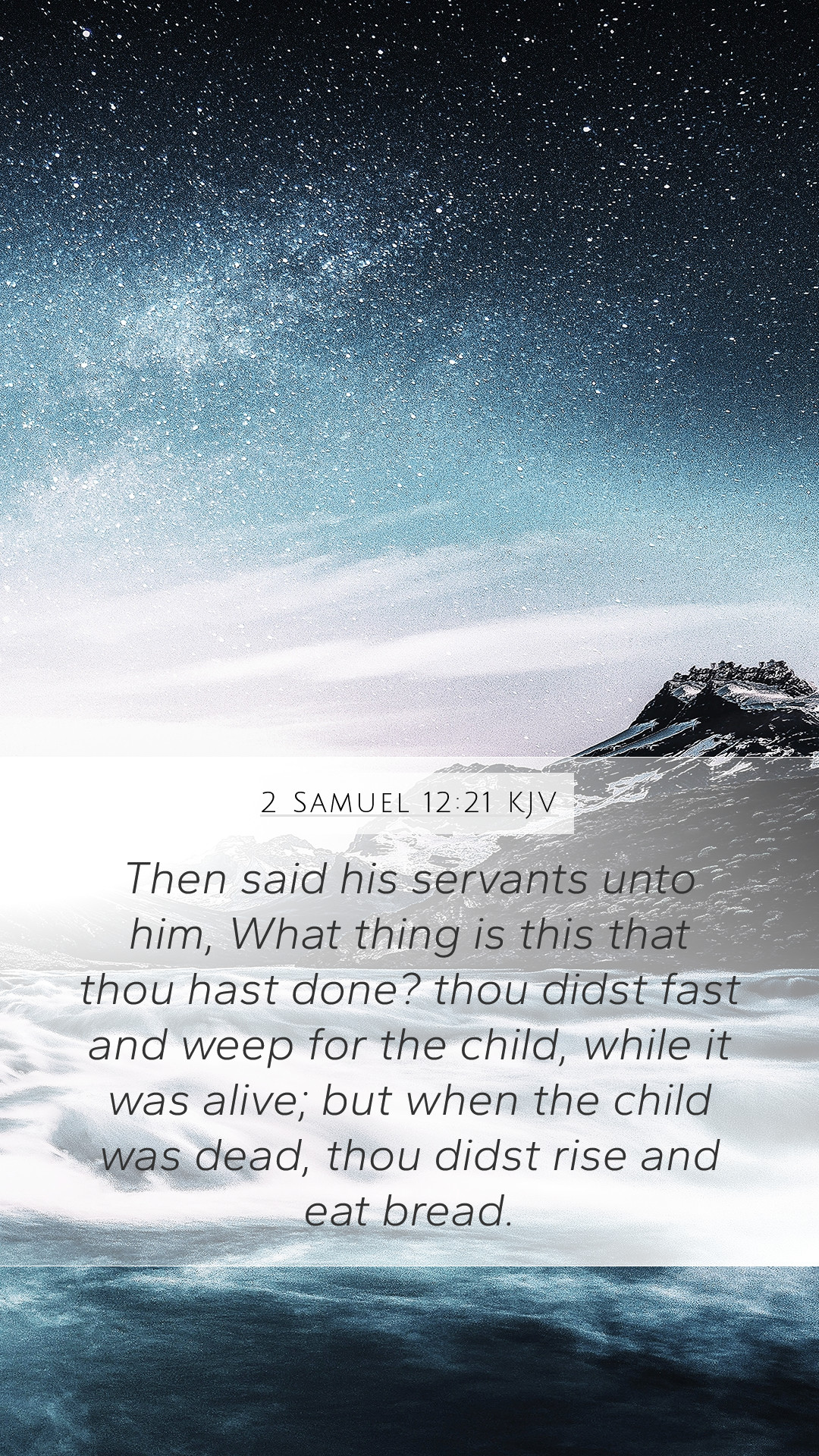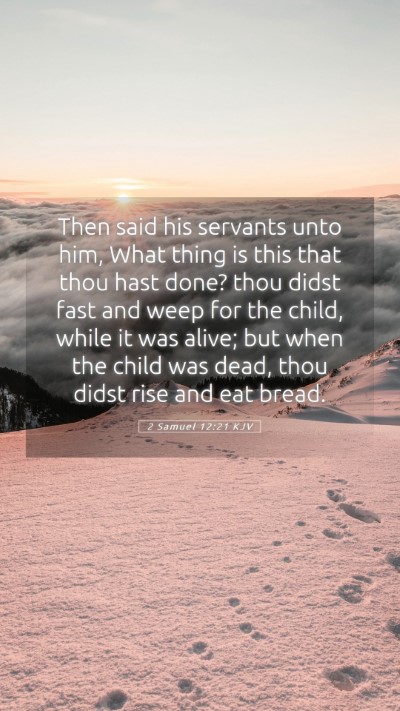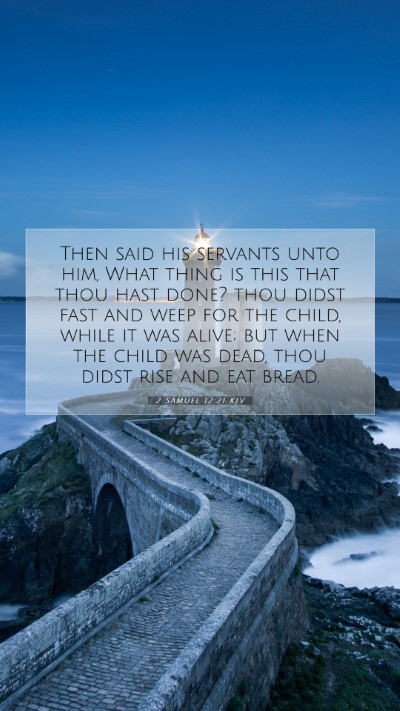Understanding 2 Samuel 12:21
Verse Reference: 2 Samuel 12:21
Verse Text: "Then said his servants unto him, What thing is this that thou hast done? thou didst fast and weep for the child, while it was alive; but when the child was dead, thou didst rise and eat bread."
Bible Verse Meaning
2 Samuel 12:21 takes place after the death of David's child, born from his union with Bathsheba. This verse reveals an important moment where David's servants question his behavior following this tragedy. The reactions of David shed light on his understanding of life, death, and the nature of God's will.
Bible Verse Interpretations
-
Matthew Henry's Commentary:
Henry notes that David’s actions before and after the child's death demonstrate a profound illustration of human emotion tied to spiritual understanding. He wept and fasted while the child was alive, reflecting a heart of desperation hoping for divine mercy. After death, however, he accepted God's will, showing profound resignation and an understanding of the fate of all humanity.
-
Albert Barnes' Commentary:
Barnes emphasizes the contrast between David’s mourning and subsequent behavior. He underscores the belief in God's sovereignty and the relativity of life. David’s decision to rise up and eat after the child’s death signifies his acknowledgment of reality and reflects a shift from individual despair to faith in God's plan.
-
Adam Clarke’s Commentary:
Clarke points out the servants' confusion in David's quick transition from mourning to eating. He elaborates on the human difficulty in understanding divine purposes, suggesting that David's newfound peace after the loss was rooted in his faith, where he recognized the finality of death and chose to move forward. This illustrates the understanding of God’s ultimate authority over life and death.
Bible Verse Commentary and Analysis
This verse serves as a pivotal teaching moment within the narrative of David's life. It showcases King David's multifaceted human emotions in the face of loss, unveiling the struggle between despair and acceptance.
Emotional Responses to Loss
David's initial response, fasting and weeping, indicates a deep human anguish—the desire for continuity in life against the harsh reality of death. His actions reflect the profound grasp of human emotions tied to relationships and loss, a relatable experience for many seeking Bible study insights today.
Acceptance of Divine Will
The transition to eating signifies acceptance. David's understanding that the child had died invokes a theme echoed throughout Scripture: the importance of trusting God's plan, even when it invites sorrow. This acceptance is critical in understanding Scripture as a whole, revealing the divine wisdom often found in painful circumstances.
Application of 2 Samuel 12:21 in Daily Life
This verse informs us about the nature of grief, acceptance, and the need for faith. It encourages those experiencing loss to openly honor their feelings, yet simultaneously invites them to trust in a greater purpose beyond understanding. For many engaging in Bible study groups or seeking online Bible study resources, this passage serves as valuable material for discussions around grief and faith.
Additional Cross References
- Psalm 30:5 - "For his anger endureth but a moment; in his favour is life: weeping may endure for a night, but joy cometh in the morning." This verse reflects the transient nature of sorrow and the promise of restoration.
- Romans 8:28 - "And we know that all things work together for good to them that love God, to them who are the called according to his purpose." This connects to the overarching trust in God’s plan and purpose.
- Job 1:21 - "Naked came I out of my mother's womb, and naked shall I return thither: the Lord gave, and the Lord hath taken away; blessed be the name of the Lord." Job expresses a similar acceptance of God’s sovereignty over life and death.
Conclusion and Final Thoughts
2 Samuel 12:21 challenges readers to navigate their responses to tragedy with faith and understanding. It opens a dialogue about genuine human emotions in the face of divine will, urging us to accept the things we cannot change while remaining steadfast in our trust in God. As part of your Bible study lessons, consider how this verse can inform your approach to healing and acceptance in your own life.


